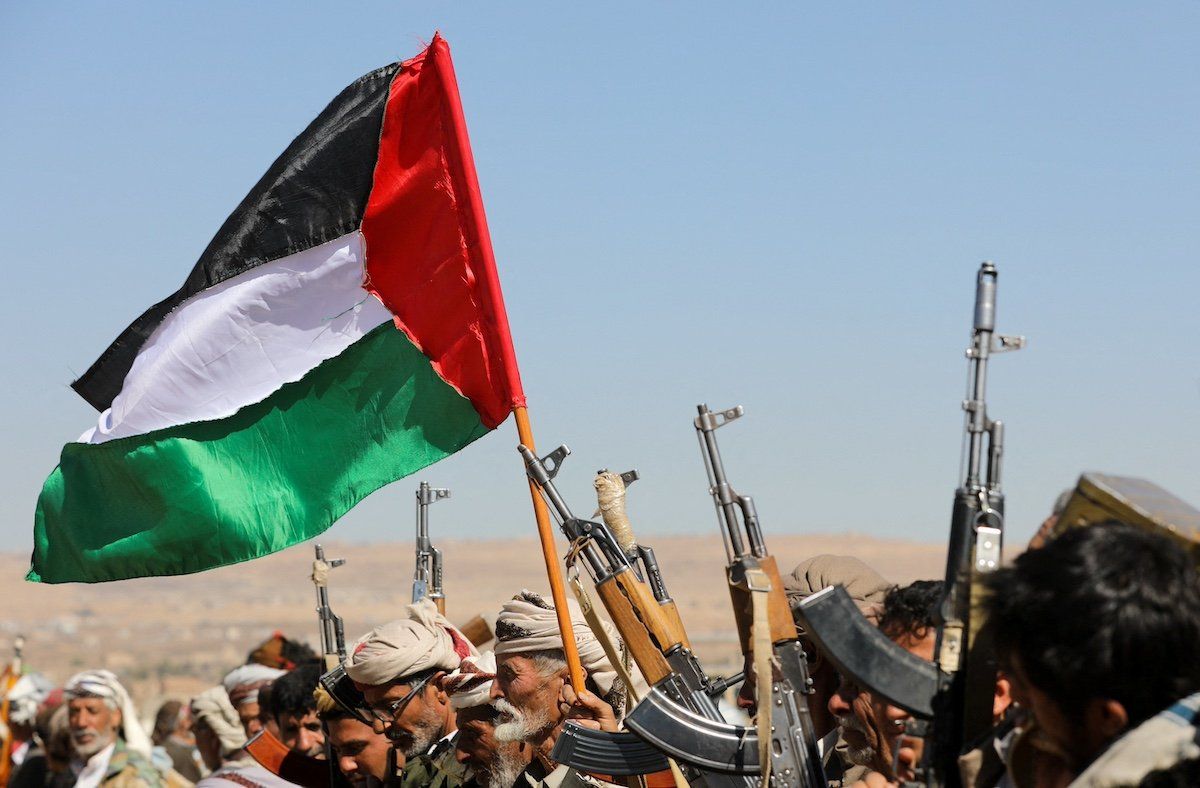Houthi rebels in Yemen took aim at a US-owned commercial ship, on Monday, launching a cruise missile at the Gibraltar Eagle in the Red Sea’s Gulf of Aden. The vessel, property of Eagle Bulk Shipping of Connecticut and flagged in the Marshall Islands, was carrying steel products. It suffered limited damage but no injuries and has now left the area.
This was just the latest salvo from the Yemen-based rebels, who on Sunday lobbed an anti-ship missile at the American destroyer USS Laboon. The strikes come in response to the US and UK bombing of over a dozen Houthi sites in Yemen last Thursday with warship- and submarine-launched Tomahawk missiles and fighter jets.
That operation put British Prime Minister Rishi Sunak in the hot seat for failing to consult Parliament beforehand. Sunak said it had been “necessary to strike at speed ... to protect the security of these operations.” The Houthis had targeted the Royal Navy’s destroyer HMS Diamond, and while Sunak emphasized the strikes were a one-off, he did not rule out future engagement if British interests were again threatened. While supportive of Sunak’s decision, opposition politicians demanded transparency for any further military interventions.
In contrast to Israel’s campaign in Gaza, where it is on the ground alone, US efforts in the Red Sea have attracted the support of over 20 nations. Why the difference in the response? First, unlike in the densely populated territory of Gaza, strikes in the Red Sea and Yemen present little to no risk to civilian populations. But perhaps more importantly, while the Houthis may claim their actions are aimed at stopping Israel’s war with Hamas, most observers agree the rebels are advancing their own aims by disrupting global trade. They have carried out 27 attacks since Nov. 19.
“Operation Prosperity Guardian” seeks to safeguard the 12% of the world's shipping that passes through the Red Sea each year and is estimated to be worth one trillion dollars.
